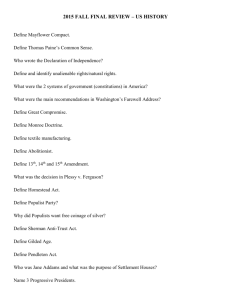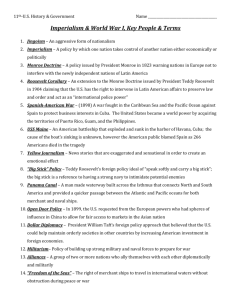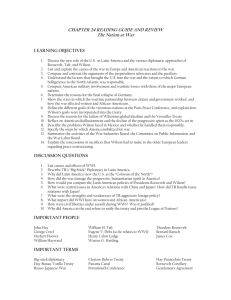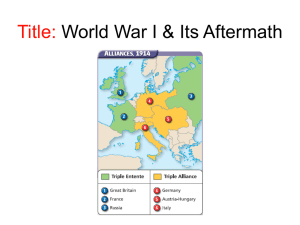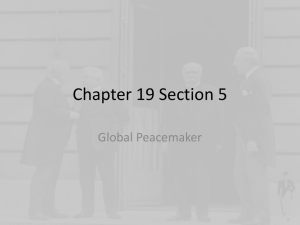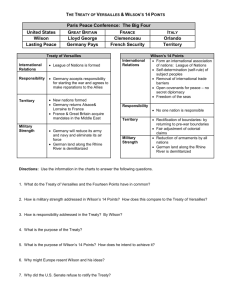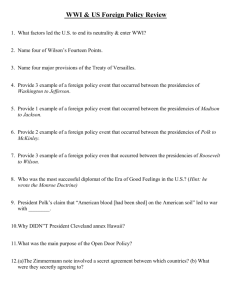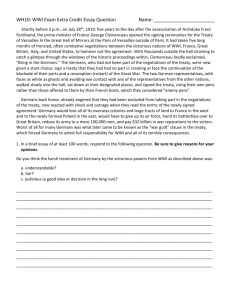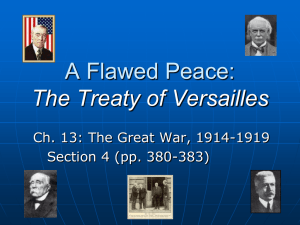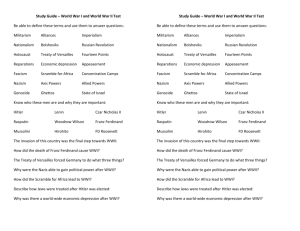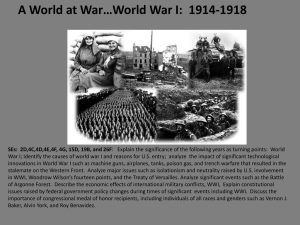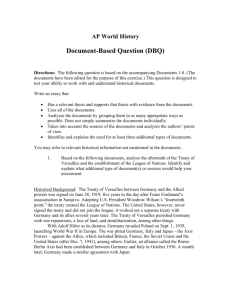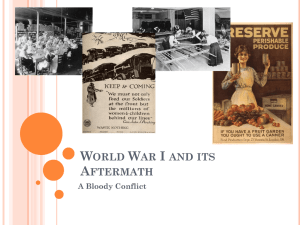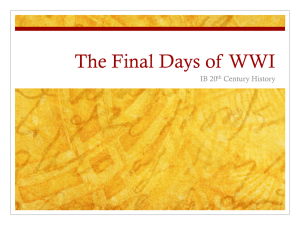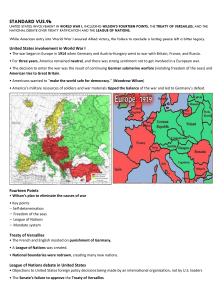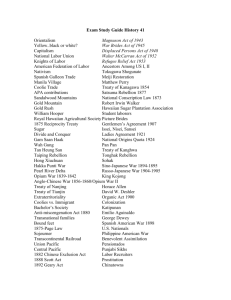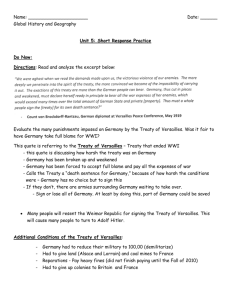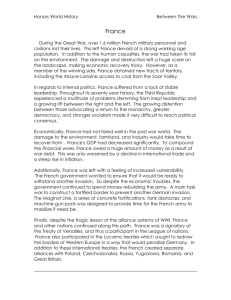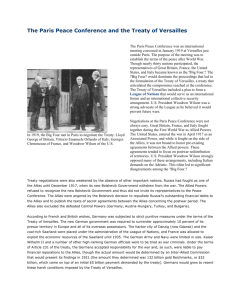3rd Trimester Final Exam Study Guide
advertisement
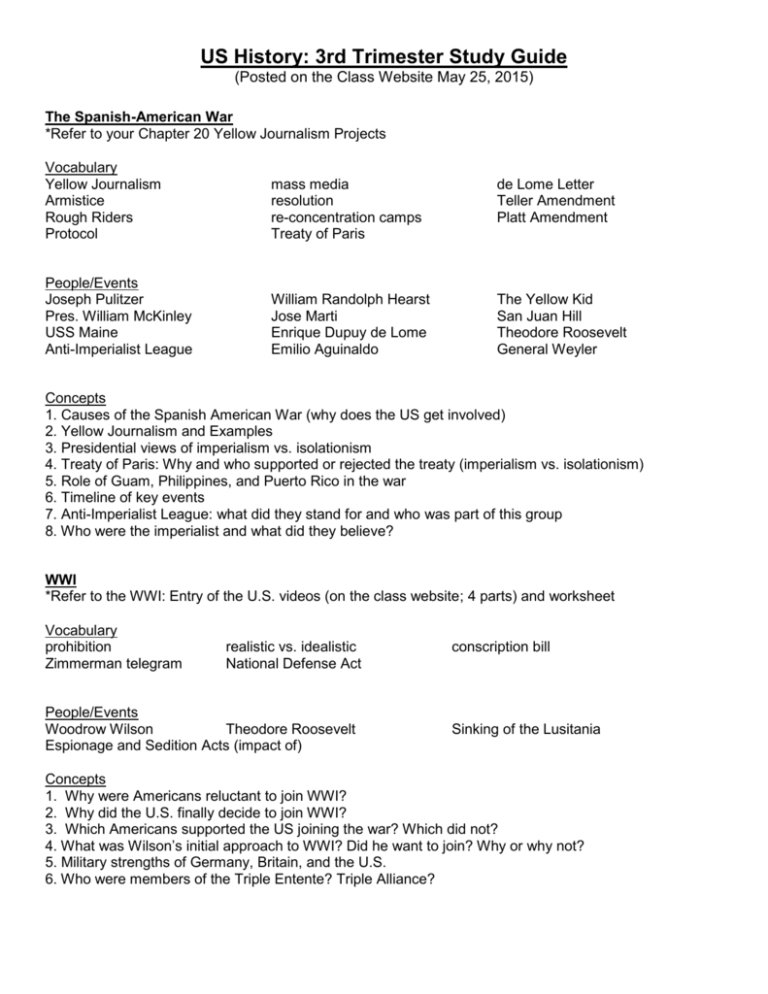
US History: 3rd Trimester Study Guide (Posted on the Class Website May 25, 2015) The Spanish-American War *Refer to your Chapter 20 Yellow Journalism Projects Vocabulary Yellow Journalism Armistice Rough Riders Protocol mass media resolution re-concentration camps Treaty of Paris de Lome Letter Teller Amendment Platt Amendment People/Events Joseph Pulitzer Pres. William McKinley USS Maine Anti-Imperialist League William Randolph Hearst Jose Marti Enrique Dupuy de Lome Emilio Aguinaldo The Yellow Kid San Juan Hill Theodore Roosevelt General Weyler Concepts 1. Causes of the Spanish American War (why does the US get involved) 2. Yellow Journalism and Examples 3. Presidential views of imperialism vs. isolationism 4. Treaty of Paris: Why and who supported or rejected the treaty (imperialism vs. isolationism) 5. Role of Guam, Philippines, and Puerto Rico in the war 6. Timeline of key events 7. Anti-Imperialist League: what did they stand for and who was part of this group 8. Who were the imperialist and what did they believe? WWI *Refer to the WWI: Entry of the U.S. videos (on the class website; 4 parts) and worksheet Vocabulary prohibition Zimmerman telegram realistic vs. idealistic National Defense Act People/Events Woodrow Wilson Theodore Roosevelt Espionage and Sedition Acts (impact of) conscription bill Sinking of the Lusitania Concepts 1. Why were Americans reluctant to join WWI? 2. Why did the U.S. finally decide to join WWI? 3. Which Americans supported the US joining the war? Which did not? 4. What was Wilson’s initial approach to WWI? Did he want to join? Why or why not? 5. Military strengths of Germany, Britain, and the U.S. 6. Who were members of the Triple Entente? Triple Alliance? The Treaty of Versailles: To Ratify or Reject? *Refer to the Chapter 25 reading packet and worksheet/notes Vocabulary irreconcilable armaments reservationists internationalist territorial integrity artisanship freedom of the seas collective security People/Events Woodrow Wilson David Lloyd George League of Nations Georges Clemenceau Treaty of Versailles Vittorio Orlando Concepts 1. What were the 3 provisions of Wilson’s Fourteen Points? 2. The League of Nations: goals and members 3. Why did some Americans support the Treaty of Versailles? What was that group of people called and why did they support the treaty? 4. Why did some Americans oppose the Treaty of Versailles? What was that group of people called and why did they oppose the treaty? 5. Who were the “Big Four” and what agenda did each of them have as they drafted the Treaty of Versailles? The Roaring 1920s Vocabulary consumer culture grassroots organizations spectator sports People/Events League of Women Voters Harlem Renaissance George Washington Carver Henry Ford Alice Paul Bessie Smith Georgia O’Keefe credit jazz Equal Rights Amendment Lost Generation Charles Lindbergh David Sarnoff Margaret Sanger Langston Hughes Jim Thorpe installment buying improvisation Jazz Age Bruce Barton Amelia Earhart Charlie Chaplin Louis Armstrong F. Scott Fitzgerald Gertrude Ederle Concepts 1. The 1920’s were a time of change for American culture and society. Be able to explain the changes that took place in the following areas of society. Be sure to give specific examples of at least 2 people and/or innovations that contributed to these trends: Consumerism Women’s Rights Transportation The Jazz Age Mass Media Art & Literature Sports Heroes The Great Depression *Refer to the Chapter 30 reading packet and your photo essay Vocabulary stock market crash bank runs Hawley-Smoot Tariff Act buying on margin speculation overproduction under-consumption unequal distribution of wealth People/Events Black Tuesday The Great Depression interest discount rate Federal Reserve System (the Fed) Concepts 1. Refer back to page 6 of your packet. What were the causes of the Great Depression? 2. Be able to explain the relationship of the various causes and their effects (refer to your photo essay) The New Deal and FDR *Refer to Chapter 33 and your New Deal mural Vocabulary National Industrial Recovery Act (NIRA) Civilian Conservation Corps (CCC) Wagner Act Congress of Industrial Organizations (CIO) FDIC demagogues mandate deficit spending Agricultural Adjustment Administration (AAA) Works Progress Administration (WPA) Social Security Act New Deal Coalition SEC right and left wing welfare state People/Events Franklin D. Roosevelt Eleanor Roosevelt Hugo Long Francis Perkins American Federation of Labor (AFL) First Hundred Days Concepts 1. What approach does Franklin D. Roosevelt take to improve like in the U.S. in the 1930s? What inspires him to do so? 2. How did the NIRA help businesses, unions, and the unemployed? 3. What did the WPA do for the people? 4. How did the New Deal plans impact various populations in the U.S.? 5. Be able to summarize the 1st New Deal, protests and political challenges, the 2nd New Deal, and its social and political impacts (sections 2-5 of the Ch. 33 reading packet) The US Joins WWII *Refer to “The War: A Ken Burns Film” notes People/Events Allies Axis Powers Concepts 1. Why do people go to war? 2. Why did the U.S. want to stay out of WWII? 3. Why did the U.S. finally join WWII? 4. How did life change for people after WWII started? 5. Who were the Axis Powers and what did they want from WWII? The Cold War *Refer to your “Is the Cold War Truly Over?” notes and essay Concepts 1. What was the Cold War and what are Cold War politics? 2. How did the Cold War start? 3. How have Cold War politics influenced world politics today? What roles have the US and Russia had in the following modern conflicts: Venezuela, Korea, Ukraine, Cuba, and Syria Modern US History (from the 1950s until today) *Refer to your Time Travel/Change Maker Presentation and Research Concepts 1. Given a decade between the 1950s and the 1970s, know at least 3 significant events that impacted the US politically, economically, socially, and regarding international relations/diplomacy. 2. Given a decade between the 1980s and the 2000s, know at least 3 significant events that impacted the US politically, economically, socially, and regarding international relations/diplomacy.
